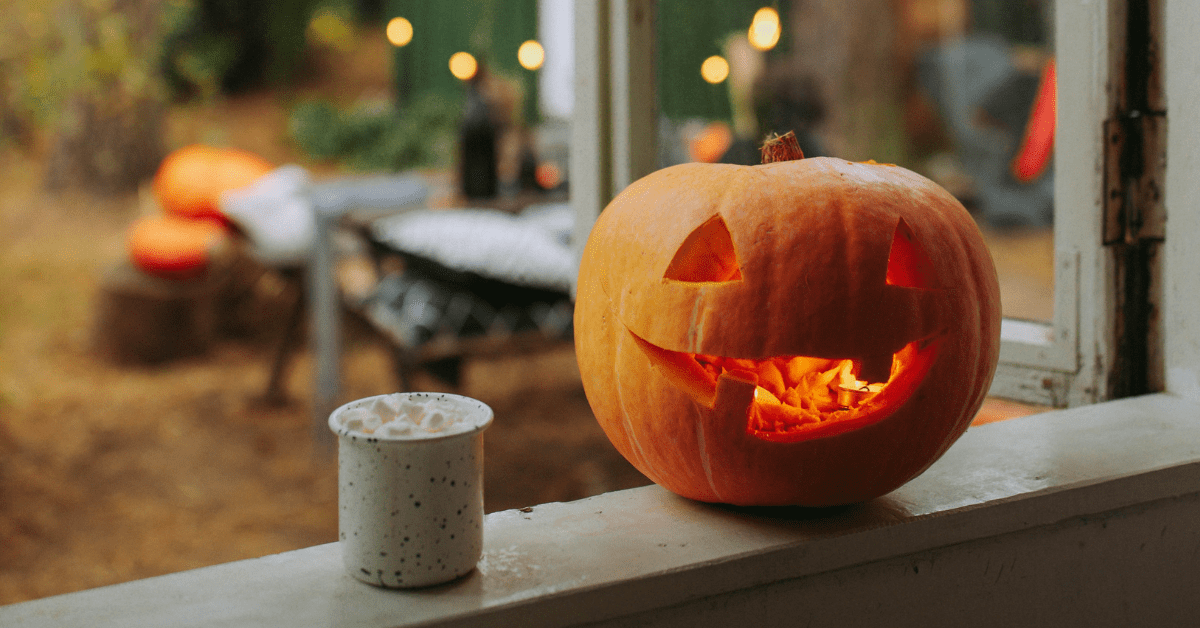Witches, ghosts and masked superheroes will soon take to the streets across America to ring doorbells and beg for candy. Neighbors have decorated their lawns with skeletons, giant cobwebs and gravestones. Commercial breaks are filled with previews of the latest horror flicks.
Halloween feels shrouded in darkness; how should those who follow the Light engage with this spooky holiday?
Halloween’s Historical and Religious Roots
When Christianity first spread around the world, the followers of Christ encountered all kinds of pagan holidays and ritual celebrations. Some of our favorite holiday traditions—the stuff of Easter eggs and bunnies, Christmas carols, trees, house decorations, gifts, and more—take their origins not from Christianity but from pagan celebrations honoring the turn of the seasons.
The same is true for Halloween.
Halloween finds its roots in an ancient Celtic holiday known as Samhain, which was celebrated the day before the Celtic New Year of November 1. The holiday marked the end of the harvest and the beginning of the long, cold winter. Winter was associated with human death, so the Celts built bonfires and made sacrifices to their deities, dressed in costumes and tried to predict each other’s futures, all as a way to protect the people from the coming winter.
The Celts believed that “on the night before the new year, the boundary between the worlds of the living and the dead became blurred,” allowing the ghosts of the dead to return to earth for one night according to history.com.
When the Romans conquered Ireland and the United Kingdom in 43 A.D., the Celtic holiday merged with two other Roman festivals: Feralia, a holiday to honor the dead, and Pomona, a festival to honor the Roman goddess of fruit (which is probably where bobbing for apples comes from).
About 600 years later, Pope Boniface IV made a holiday to honor all of the Christian saints and martyrs, which was observed by the church on November 1. This tradition is called All Saints’ Day. Three hundred years later, Christianity arrived on the rocky shores of Ireland. In 1000 A.D., the church created All Souls’ Day, to be celebrated on November 2. All Souls’ Day celebrations looked very similar to Samhain, with bonfires, parades and people dressing up as angels, saints, and devils. El Día de los Muertos, or the Day of the Dead, is a Mexican holiday that has similar traditions as these two Christian holidays.
All Saints’ Day was also called “All-hallows or All-hallowmas (from Middle English Alholowmesse meaning All Saints’ Day) and the night before it, the traditional night of Samhain in the Celtic religion, began to be called All-Hallows Eve and eventually, Halloween.”
Halloween arrived in America with Irish immigrants in the 19th century. Fast forward 150 years, and now our kids dress up as inflatable dinosaurs and Cruella DeVille.
People Living in Darkness Have Seen a Great Light
People all over the world acknowledge and remember the passing of life to death in various festivals and traditions. It is holy. It is mysterious. And, yes, for many of us, it gives us the creeps. Humanity has always found a way, through story, to come to grips with this reality.
As people carrying the good news of Jesus entered new territories with foreign gods, they did what religious leaders have always done: they infused the Word of God into the existing stories of the people. They took their lived experiences and God’s natural revelation and incorporated the revelation of the Word of God, Jesus Christ.
As Christianity spread across the globe, Christ followers embodied Jesus’ words: “You are the light of the world. A town built on a hill cannot be hidden. Neither do people light a lamp and put it under a bowl. Instead they put it on its stand, and it gives light to everyone in the house. In the same way, let your light shine before others, that they may see your good deeds and glorify your Father in heaven”
Matthew 5:14-16 NIV)
If everything that exists was created by God, and in him there is life, then the light of God can be revealed in all things. Light illuminates. The darkness does not overcome it
John 1:1-5 NIV
The church has taken on the work of being the light of the world for nearly two thousand years, casting the Light of Christ even into pagan holidays, like the ones that give us our modern day Halloween. So, how now shall we carry on this same tradition?
Fear Not, and Invite Love into Halloween
The phrase “do not be afraid” appears around 144 times in the Bible. It is the most often repeated phrase in Scripture. God doesn’t call us to live in fear. Although there are dark things, evils and principalities and such, that exist, we’re not called to cower from them, we’re called to confront them, struggle against them, with the full armor of God (Ephesians 6:11-13).
When we invite the love of God into everything we do, the Holy Spirit’s fruit follows. Where there was darkness and greed, violence and terror, now there is peace and joy, kindness and goodness, gentleness and self-control.
Remember the dead; celebrate the great cloud of witnesses that preceded us.

Be generous. Be the house that hands out giant sized candy bars.
Don’t take ourselves so seriously—go ahead, dress up like a clown, laugh, bring the Light of Love into every living thing.
Of course, use wisdom and discernment to sense the movement of the Holy Spirit. There are frightening, gorey, gruesome things, and parents ought to weigh what is appropriate for little eyes and ears. But don’t dismiss horror outright. Even horror has truths to teach us. We should not be afraid.
Let the light of Christ guide you to do as writer Sarah Bessey recently said, to “guard your gates” so that, as Paul wrote in the letter to the Philippians, “whatever is true, whatever is noble, whatever is right, whatever is pure, whatever is lovely, whatever is admirable—if anything is excellent or praiseworthy—think about such things.”
The Amplified Bible passage from 2 Timothy 1:7 puts it this way: “For God did not give us a spirit of timidity (of cowardice, of craven and cringing and fawning fear), but [He has given us a spirit] of power and of love and of calm and well-balanced mind and discipline and self-control.” It is with this same spirit of power that we can enter joyfully into this holiday and other pagan holidays we encounter, like Christmas (gasp!) or Easter (Lord have mercy!).
Go forth, ye fairy princesses and miniature PJ Masks characters, partake of all the Skittles and Hershey’s bars you can get your costumed paws on.





 Copyright
2024
Root and Vine
Copyright
2024
Root and Vine